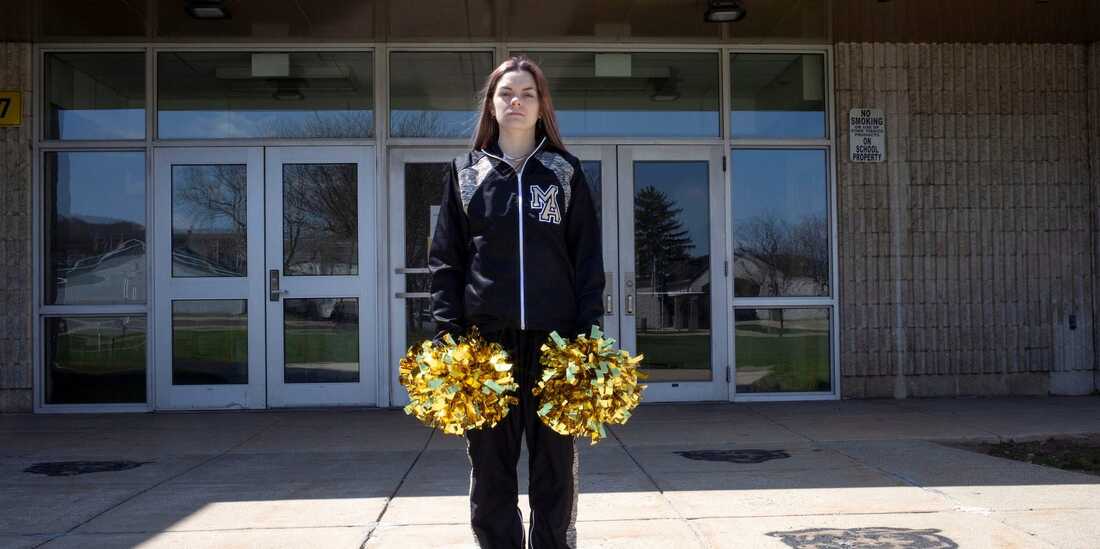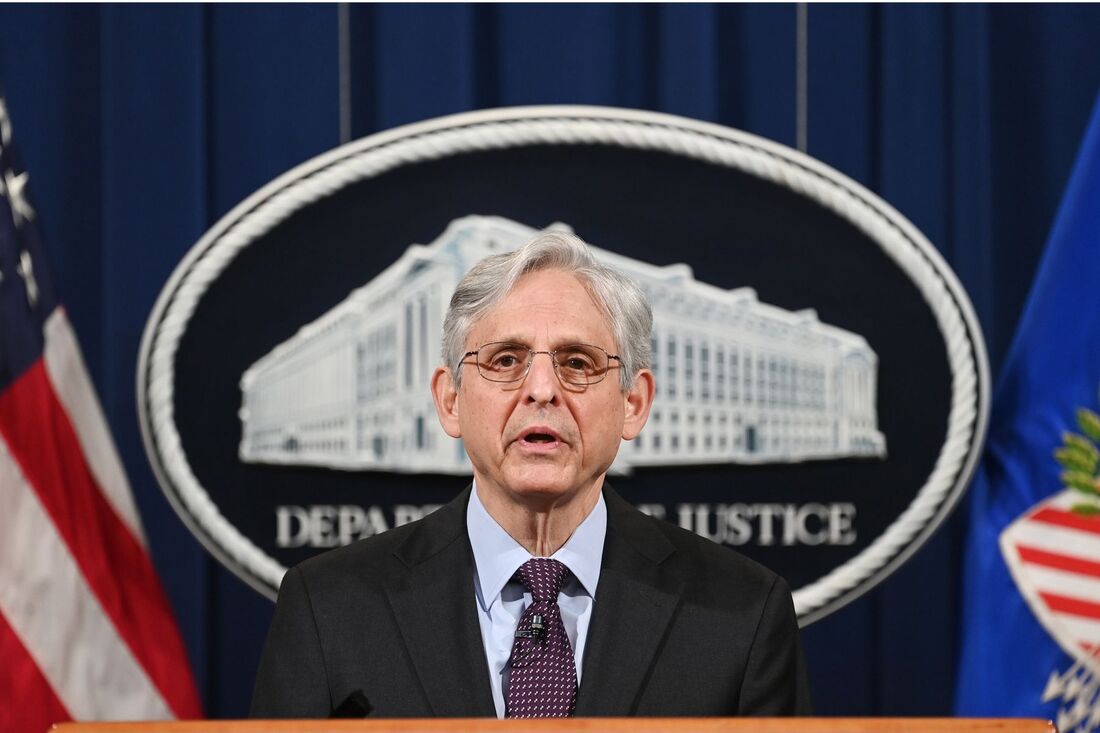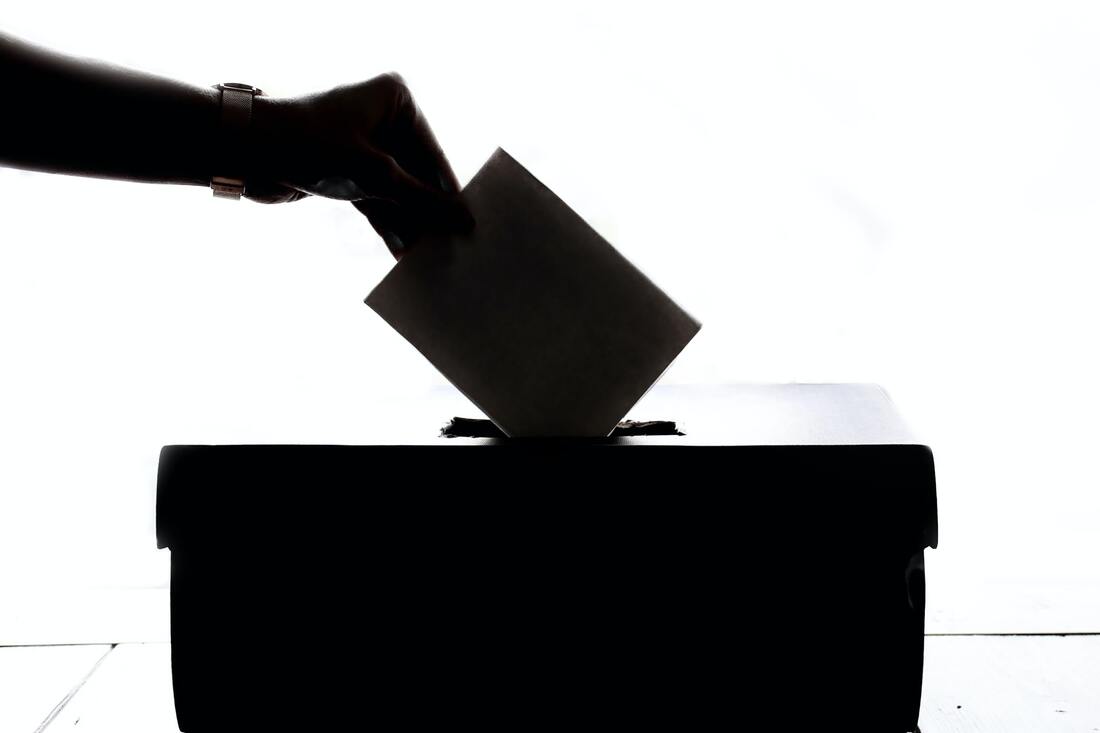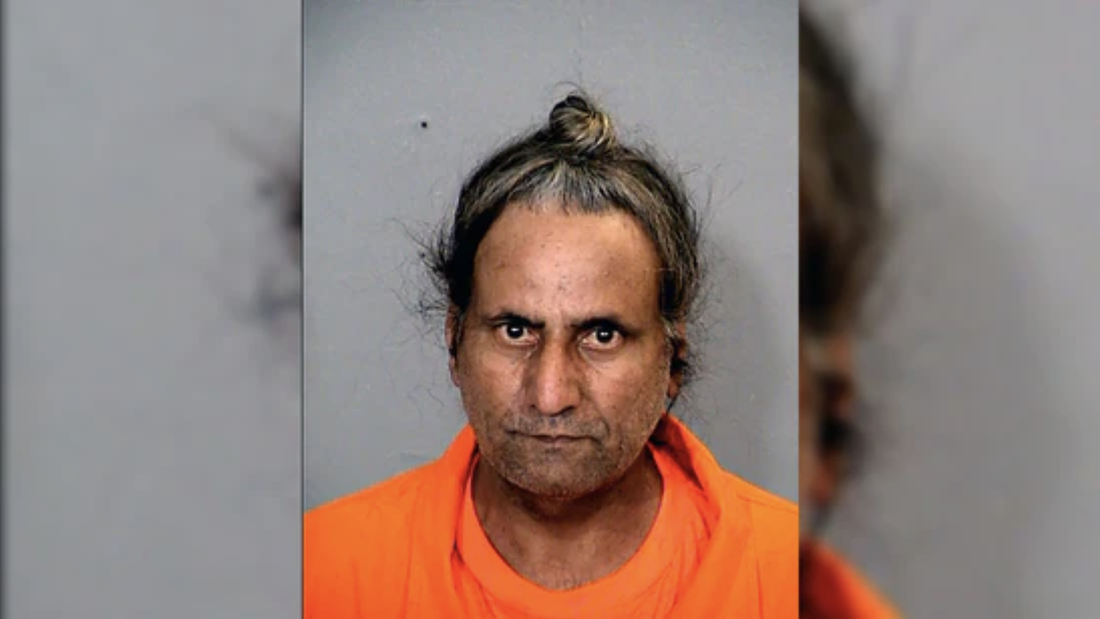|
Can public school officials regulate the off-campus speech of their students?
As Protect The 1st has reported, long-standing precedent from the Vietnam-era Tinker v. Des Moines Independent Community School District ruling held that school officials have a limited ability to regulate on-campus speech if it “substantially interfere[s] with the work of the school.” But since the Tinker decision, social media has sometimes blurred the boundaries between on-campus and off-campus speech. In Mahanoy Area School District v. B.L., a school removed Brandi Levy, then 14 years old, from the school’s cheerleading squad after she made generous use of a common Anglo-Saxon verb to express her views about her school and sports – underscored with an image of her and a friend making a familiar hand gesture. A federal district court ruled in favor of the cheerleader in 2019, saying that even if Tinker applied, Brandi Levy’s speech wasn’t sufficiently disruptive to override her First Amendment rights. The U.S. Court of Appeals for the 3rd Circuit, however, went further, holding that Tinker does not apply to off-campus speech at all. In its 8-1 ruling today, the Supreme Court held that Levy’s speech was protected. The opinion reads almost like something from The Onion, with justices solemnly weighing in on what was said at the Cocoa Hut convenience store and how ten minutes in an algebra class might have been disrupted by the post. Associate Justice Stephen Breyer wrote for the majority, acknowledging that it might be “tempting to dismiss” the student’s “words as unworthy of the robust First Amendment protections discussed herein.” Justice Breyer added: “But sometimes it is necessary to protect the superfluous in order to preserve the necessary.” Thanks to the Court’s ruling, it is not the place of government officials to decide what speech they deem worthy or “superfluous,” or whether the colorfulness of the expression is necessary or not, polite or uncouth. That is largely the point of “freedom,” after all – the free get to decide those questions for themselves. The Court’s ruling, however, did not eliminate all potential regulation of off-campus student speech, particularly where the in-school consequences might be more serious, as in the case of cheating, or bullying and threats towards classmates and teachers. But noting that regulating off-campus speech generally involved a lesser interest on the part of the school and imposed a greater burden on students, the Court left for another day the First Amendment rules for regulation of other, more troubling, off-campus speech. But for now, students are free to express themselves, even with colorful passion, on various issues large and small without fear of school officials’ overly intrusive efforts to police their speech. And that counts as a win both for students and for the First Amendment. Protect The 1st filed an amicus brief today at the U.S. Supreme Court in Project Veritas Action Fund v. Rollins opposing a ruling from the U.S. Court of Appeals for the First Circuit. That lower-court ruling upholds a Massachusetts law making it illegal for anyone but law enforcement officers to record others without their consent. The First Circuit, unlike other circuit courts of appeal, ignored the threat such laws pose to First Amendment rights of speech and the press.
“The plaintiff, Project Veritas, is a conservative activist group that you might love, hate or simply want to ignore,” says Gene Schaerr, Protect The 1st general counsel. “But their rights are everyone’s rights. Had this law been in effect in Minnesota, 18-year-old Darnella Frazier would not have been able to film the police and we would never have heard of George Floyd. In fact, she would have ended up in handcuffs instead of receiving a Pulitzer Prize citation.” The PT1st brief surveys the value of undercover reporting throughout American history, beginning with the work of groundbreaking investigative journalists like Nellie Bly – who posed as a maid to expose abuses by employment agencies in 1887 – and Upton Sinclair, whose work in slaughterhouses prompted President Theodore Roosevelt to sign the Meat Inspection Act in 1906. Undercover practices, used by journalists and citizens alike to gather evidence against governmental and private entities to build support for meaningful policy changes, are now almost entirely illegal in Massachusetts. There is still a clear public interest in exposing private misdeeds, and the most effective way to sort the innocuous from the genuinely harmful is to protect the flow of information. Whether it’s a Georgia woman exposing inappropriate physical contact from a physician, or a whistleblower gathering evidence about overt racism in the workplace, often the only way to gather meaningful evidence is to record without the offending party’s knowledge where such parties do not have a reasonable expectation of privacy. Such tactics are often the only defense for the defenseless. In 2014, a disabled 15-year-old special needs boy in a Pennsylvania school secretly used his iPad to record the behavior of bullies tormenting him. Police charged him with illegal wiretapping – the kind of outcome that the Massachusetts law would now endorse. Even without accounting for the clear public interest in allowing citizens to expose wrongdoing around them, Massachusetts’s law presents several clear dangers to the average citizen of the 21st century. Does the prohibition against recording an individual without consent extend to technology like nanny cams or Ring doorbells? Must a victim of a drunk driver obtain that driver’s permission before sharing a dashcam video with the police? Situations like these are likely not the intent behind the Massachusetts law, but such eventualities – as with the special needs student in Pennsylvania – are inevitable when individual freedoms are curtailed so broadly. “The Supreme Court should step in and take this opportunity to allow citizens to protect both their interests and the public’s,” Schaerr said. “Massachusetts’s prohibition on recording without consent already clearly violates the First Amendment right of Americans to record public officials performing their duty. However, the Supreme Court should go one step further and make it clear that Americans have the right to record where others lack a reasonable expectation of privacy.” Catholic Diocese Sues to Remove South Carolina Blaine Amendment “Born of Bigotry and Prejudice”6/10/2021
“Pitchfork” Ben Tillman was a virulent racist who, as governor of South Carolina and as a U.S. Senator in the late 19th century, openly praised the disenfranchisement and lynching of African-Americans. He also capitalized on the anti-Catholic sentiment of the day, angry that Catholic institutions and schools founded by Northern missionaries were serving former slaves.
So Tillman called a new state constitutional convention in 1895 and had drafted for South Carolina a thoroughly racist constitution. He ensured that South Carolina would be one of ultimately 36 states with a “Blaine Amendment.” Riding on a current of anti-Catholic sentiment in 19th century America, the Blaine amendments forbade states from directing funds to independent and religious schools. Flash forward to the 21st century and the recent coronavirus pandemic. In South Carolina, as elsewhere, parochial and private schools were managing to stay open while many public schools struggled. Nearly three dozen Catholic parochial schools and eight historically Black colleges planned to use access to state grants to provide schooling for more South Carolina children. They soon learned that no good deed goes unlitigated. When the application by these schools was challenged in state court, what law did the opposing counsel base their case upon? South Carolina’s Blaine Amendment, put in place by “Pitchfork” Ben. With a Blaine Amendment in the state’s constitution, the South Carolina Supreme Court ruled that the private schools could not access these grants. Now the Roman Catholic Diocese of Charleston, which covers 33 K-12 schools, and the South Carolina Independent Colleges and Universities – which represents 20 institutions, including five historically Black colleges and universities – are mounting a federal lawsuit calling for the removal of the Blaine Amendment from the state constitution. They are aided in their lawsuit by the Liberty Justice Center, a public interest law firm in Illinois. Bishop Robert E. Guglielmone of Charleston announced the lawsuit, which states the Blaine Amendment, “born of bigotry and prejudice, based on race and religion… violates the equal protection and free exercises clauses of the U.S. Constitution.” A victory by these schools would expunge the legacy of “Pitchfork” Ben Tillman and provide a new avenue to quality education for low-income and minority children. “This weekend’s announcement by the Department of Justice that it will no longer seize reporters’ records in leak investigations is a win for civil liberties,” said Rick Boucher, senior policy advisor of Protect The 1st. “But it is not nearly enough to protect the flow of information that journalists facilitate.
“The DOJ’s action, unless buttressed by formal guidelines, could easily be reversed by a future administration,” the former Democratic congressman from Virginia said. “We need new formal DOJ guidelines if we are to have a lasting, meaningful protection for freedom of the press.” Boucher praised President Joe Biden and Attorney General Merrick Garland for acting with alacrity after Charlie Savage and Katie Benner of The New York Times reported Justice Department lawyers had for months fought a secret legal battle to access the email logs of four reporters. DOJ had previously seized these reporters’ phone records. We need new DOJ guidelines if we are to have a lasting, meaningful protection for freedom of the press. During the Trump Administration, the government obtained a secret court order to seize phone and email records from CNN Pentagon correspondent Barbara Starr. In the Obama Administration, government lawyers seized phone records from the Associated Press, as well as executing a search warrant for the emails of Fox News reporter James Rosen. Boucher said Protect The 1st would urge the Biden Administration to “finish the job” by enacting formal Department of Justice guidelines restricting the ability of government prosecutors to access reporters’ records and the identity of confidential news sources. “The surveillance of journalists is a bipartisan temptation. It demands a bipartisan solution,” Boucher said. Boucher said Protect The 1st will also push to revive federal legislation, The Free Flow of Information Act, endorsed by President Obama late in his administration, and supported in the past by many Republicans, including Sen. Lindsey Graham. The legislation would provide to journalists a qualified privilege to refrain from revealing confidential news sources. “Treating a reporter’s sources as a fishing pond should be a no-go,” Boucher said. From the right, George Will writes of the “For the People Act,” now before the U.S. Senate, which would increase federal oversight of U.S. elections: FTP sweeps beyond elections … by requiring disclosure of even small-dollar donors to organizations involved only in issue advocacy, not elections. This is sinister, given the ferocious vindictiveness of today’s virtual mobs, that hound people associated with controversial charges. Will is critical of the entirety of FTP for extending federal power over elections. But increasingly, many liberals – who do support FTP overall – are coming to agree that the bill is too restrictive of speech and will expose donors to threats. From the left, in a recent piece by ACLU’s Kate Ruane and Sonia Gill in The Washington Post, they report that in an effort to crack down on “dark money,” the bill could require donor disclosure of “paid political speech that discusses a public issue such as immigrants’ rights, voting rights or reproductive freedom if the communication merely mentions a candidate for public office.” Ruane and Gill write: We know from history that people engaged in politically charged issues become political targets and are often subject to threats of harassment or even violence. These writers, from the left and right, are correctly predicting enormous turmoil and potential violence directed against people across the ideological spectrum if this donor disclosure measure passes. Protect The 1st has filed an amicus brief before the U.S. Supreme Court in Americans for Prosperity v. Rodriguez to highlight the dangers of forced donor disclosures. In this case, the state of California requires charitable non-profits to report their donors to the state, ostensibly to prevent fraud. The donors’ names are supposed to be kept under lock and key by the state but data has leaked out. In 2009, for example, the California attorney general’s office mislabeled contributions and released them on the internet, including the confidential information of hundreds of donors to Planned Parenthood. Protect The 1st has reported many instances of people on both the left and right in California having their jobs, businesses and very lives threatened after having their donations revealed. ACLU points to a campaign to force Black Lives Matter to reveal its sources of funding. Those organizations seeking to aggressively advance civil rights and civil liberties through paid communications about issues of public importance should not be deterred from doing so because the government may force public disclosure of their supporters’ identities. These writers, from the left and the right, are correctly predicting enormous turmoil and potential violence directed against people across the ideological spectrum if this measure passes. Thousands of organizations that engage in advocacy will be shocked to find themselves hauled up before regulators for not complying with the stringent and invasive demands for information – all in the naïve belief that they have an inherent right as Americans to freely speak out on the issues of the day. He Told Officers He Would Rather Have His Throat CuTProtect The 1st has reported on the issue of Muslim, Jewish Orthodox and Sikh men facing resistance to the wearing of beards – a religious obligation in all three faiths – while serving in the U.S. military. Protect The 1st demonstrated that this is a violation of the federal Religious Freedom Restoration Act.
But what about the religious rights of the incarcerated? The federal Bureau of Prisons, understanding the importance of outward observances in these faiths, permits men to wear beards of any length. Among those who wear beards in prison are Sikh men, for whom keeping one’s hair unshorn is a serious religious obligation. Some states, however, have no awareness or sensitivity to this religious requirement. In 2020, a Sikh man, Surjit Singh, reported to a reception center operated by the Arizona Department of Corrections. The 64-year-old trucker had been sentenced to five years in prison for reportedly rolling through a stop sign, leading to an accident that claimed a life. Despite Singh’s vigorous protests, correctional officers shaved off his beard. Singh had never cut, shaved or trimmed his hair. He begged the officers to cut his throat instead. Later, when Singh’s beard approached a 1-inch length permitted under Arizona prison rules, correctional officials threatened to shave him again. This was a plain violation of the Religious Land Use and Institutionalized Persons Act (RLUIPA), passed in 2000 by Congress with the understanding that the incarcerated are especially vulnerable to religious discrimination. And whatever their crimes, the incarcerated deserve – and indeed, one could argue they especially need – access to religious practices. Under RLUIPA, Arizona’s correctional officers ignored or were ignorant of a requirement to grant a religious accommodation for Singh’s beard and turban. ACLU of Arizona, the Sikh Coalition, and law firm WilmerHale, filed a complaint with the U.S. Department of Justice and the Arizona Department of Corrections, Rehabilitation and Reentry for this especially egregious infringement of Singh’s rights. Of the world’s 26 million Sikhs, 500,000 live in the United States, including thousands in Arizona. It is time for Arizona to recognize that federal law requires accommodation with their religion, just as it protects our right to worship, or not worship, as we please. |
Archives
June 2024
Categories
All
|
ABOUT |
ISSUES |
TAKE ACTION |







 RSS Feed
RSS Feed